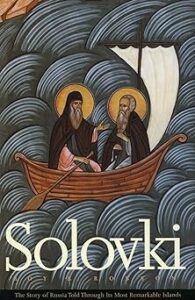The Association for the Study of Eastern Christian History
and Culture, Inc. (ASEC) Tenth Biennial Conference
The Body and Eastern Christianity
Thursday-Saturday, February 1-3, 2024
Blackwell Inn and Pfahl Conference Center
The Ohio State University
Columbus, Ohio, USA
DEDICATED TO THE MEMORY OF
ROY R. ROBSON
Thursday, February 1, 2024
5-7:30pm Opening Reception Pfahl 3rd Floor Foyer
7-7:30pm Discussion of “Exarch,” a ten-minute film
Friday, February 2, 2024
7:30-8:30am Breakfast Pfahl 1st Floor Foyer
8:30am Opening Remarks Pfahl 140
8:45-9:55am Session 1. Byzantine Christianity Pfahl 140
Chair: Russell Martin, Westminster College
Shawn McAvoy, Patrick Henry Community College (via Zoom)
“By the Concession of the Holy God, He Receives the Authority to Deceive the World”: A 5th- to 6th-Century Byzantine Antichrist
Özlem Eren, University of Wisconsin, Madison
Byzantine, Romanesque or Rus’ Architecture? 12th-Century Galicia-Volhynia
10:10-11:45am Session 2. Bodies Transformed: Transubstantiation, Materia Magica, and the Returning Dead in Early Modern Eastern Europe and Russia
Chair: Jenn Spock, Eastern Kentucky University
Valerie Kivelson, University of Michigan
Magic and Body Parts
Clare Griffin, Indiana University
Vampires Between Religious Problem and Scientific Oddity in Early Eighteenth-Century Russia and Eastern Europe
Matthew Romaniello, Weber State University
“A Little Too Partial to the Ceremonies of Their Own Church”: John Glen King’s Investigation of the Russian Orthodox Liturgy in the 1760s
12-1:05pm Lunch Pfahl 330
1:15-3:15pm Session 3. Orthodoxy and Empires: Law, Practice, and Boundaries
Chair: Nadia Kizenko, SUNY Albany
Camilla Pletuhina-Tonev, Princeton University
Between Sin and Crime: Outlawing the Acts “Against the Orthodox Rite”
in the Eighteenth-Century Ottoman Empire
Luke Jeske, University of North Carolina—Chapel Hill
Orthodoxy and Empire: Grand Duke Konstantin Nikolaevich’s 1859 Pilgrimage to the Holy Land
Joshua Donovan, Boston College
Old Wine in New Wineskins: Orthodox Identity in the French-Partitioned Levant
Heather Bailey, University of Illinois Springfield
Political Crime, Physicality, and Punishment in Comparative Perspective: France and Russia in the Second Half of the Nineteenth Century
3:30-5:05pm Session 4. Hunger and Fasting Pfahl 140
Chair: Heather Bailey, University of Illinois Springfield
Victoria Legkikh, Technical University of Munich
You Were the Praise of Fasting: St. Euthymius of Suzdal
Page Herrlinger, Bowdoin College
Faith and Hunger: Orthodox Bodies and Souls in a Condition of Extreme Deprivation (1910-1940s)
Vaughan Koga, Institute for Orthodox Christian Studies and Anglia Ruskin University, UK
Orthodox Fasting: The Body and a Pathway to a More Sustainable World
5:45pm Keynote Address Pfahl 140
Katherine Karam McCray, St. Michael’s College, University of Toronto (Canada)
Disability and the Interpretive Body
7-8pm Reception Pfahl 3rd Floor Foyer
Saturday, February 3, 2024
7:30-9am Breakfast Pfahl 1st Floor Foyer
9-10:40am Session 5. Disability and Liturgy Pfahl 140
Chair: Scott Kenworthy, Miami University
Nadieszda Kizenko, SUNY Albany
Churches in Institutions for the Disabled in Late Imperial St. Petersburg and Their Liturgies
- Eugene Clay, Arizona State University
The New York Institution for the Blind: A Source for Russian Mystical Sectarian Songs
Abbess Evfrosinia Molchanov, Lesna Monastery of the Most Holy Mother of God (France)
Orthodox Monasteries and the Disabled
10:50-12pm Session 6. Sexuality Pfahl 140
Chair: Thomas Bremer, University of Muenster
Aram Sarkisian, Washington University in St. Louis
“Troubled with This”: Clerical Sexual Abuse as an Orthodox Problem in the United States
12-1pm Lunch Pfahl 330
1:15-3:20pm Session 7. Modern Theology Pfahl 140
Chair: J. Eugene Clay, Arizona State University
John Burgess, Pittsburgh Theological Seminary
Kenotic Love: Pavel Florensky’s Prison Correspondence
Oleksandra Shtepenko, Nicolaus Copernicus University in Toruń (Poland)
(via Zoom)
Through the Prism of the Body: The Celebration of the 1000th Anniversary of the Baptism of Kievan Rus as a Chance to Legalize the Ukrainian Greek Catholic Church
Sean Griffin, University of Notre Dame
The Dark Double: Russian Orthodoxy in Andrei Zviagintsev’s Leviathan
Ksenia Medvedeva, Institute of Philosophy and Sociology of the Polish Academy of Sciences (Warsaw) and Freie Universität Berlin (Germany)
Green Orthodoxy: Ecological Conversion of Eastern Orthodox Churches (The Case of Greece)
3:30-5:05pm Session 8. Russia and America Pfahl 140
Chair: Luke Jeske, University of North Carolina—Chapel Hill
Scott Kenworthy, Miami University
Patriarch Tikhon and the Russian Orthodox Church Abroad
Russell Martin, Westminster College
St. John of Shanghai and San Francisco and the Future of the Russian Monarchy
Nina Shultz, American Theological Library Association
Indigenous Orthodox Saints in Alaskan Religious Life
5:20pm Special Session. In Memoriam: Roy R. Robson
6-8pm Banquet Pfahl 330
MANY THANKS TO OUR LOCAL SPONSORS:
The Ohio State University’s Resource Center for Medieval Slavic Studies,
Hilandar Research Library, Department of History, Department of
Near Eastern and South Asian Languages and Cultures,
Center for Slavic, East European and Eurasian Studies, Center for the Study of Religion, and University Libraries

